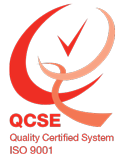The World Steel Association estimates that the automotive industry accounts for roughly 12% of the overall steel consumption. For a long time, steel has been the material of choice for safety and strength.
However, as car manufacturers continue to face increased pressure to manufacture vehicles that are more fuel efficient and produce fewer emissions, steel is being challenged by lighter materials such as aluminium.
In this article, we look at the importance of steel in the automotive industry, and how the switch to alternative materials may affect the steel industry.
Importance of steel in automotive manufacturing
There is a great deal of steel that goes in to building a car. From the chassis to the engine, steel equates to almost 60% of the total weight of a modern car.
Steel has been the dominant structural material used in cars and trucks as far back as the 1920s. Steel made it possible to build stronger, stiffer and more durable bodies and chassis. Steel could also be easily stamped and welded, which helped with mass production.
Over the years, with the introduction of galvanised steel, manufacturers were able to produce steel bodies with greater corrosion resistance too.
Is aluminium a threat to steel?
The latest and greatest challenge facing manufacturers is one of fuel economy. It has been shown that a lighter car means lower fuel consumption and carbon dioxide emissions. For every 100kg of weight saved, there’s a reduction of emissions by 9g CO2/km and 0.35l/100km less fuel consumed.
That is why, manufacturers are switching to aluminium and plastic composites to produce lighter vehicles. And the shift away from steel is already happening with aluminium accounting for roughly 25% of the weight of a 2015 model Ford F-150, up by about 10% from earlier models. Broadly, the average aluminium content in cars manufactured in the U.S.A. today has increased by 20kg per vehicle between 2012 and 2015.
On the other hand, aluminium is still more expensive that steel, as are other lighter products such as manganese and plastic composites. Hence, there’s a trade-off between weight reduction and an increase in cost.
Either way, the use of aluminium is expected to increase in the automobile industry, which may drive steelmakers to advance their range of high strength steels.
Steel is vital to Australia’s economy
Even though our domestic automotive industry is not as strong as it once was, steel production and processing is still a vital contributor of Australia’s economy.
ShapeCUT is one of Brisbane’s leading steel profile cutting and metal processing companies. With 5000+ tonnes of steel plates in stock at any one time, 10 modern cutting machines, we cut steel with precision, reliability and speed.
Contact ShapeCUT today for a fast, competitive quote or to find out more about the different grade steel available in our Brisbane workshop.
Contact Us To Find Out More
We ensure a fast, exact and economical steel solution for our clients. Call our team today to discuss your steel cutting and metal processing requirements.
Get Our Newsletter
Contact details
121 Mica Street, Carole Park,
QLD, 4300, AUSTRALIA
Freecall: 1800 SHAPECUT (1800 742 732)
Telephone: (07) 3271 5600
Facsimile: (07) 3271 5454
Email: sales@shapecut.com.au
Accredited Profile Cutting

Profile Cutting
©2023 ShapeCut | Website design Brisbane by iFactory | Privacy Policy | Search | Sitemap



